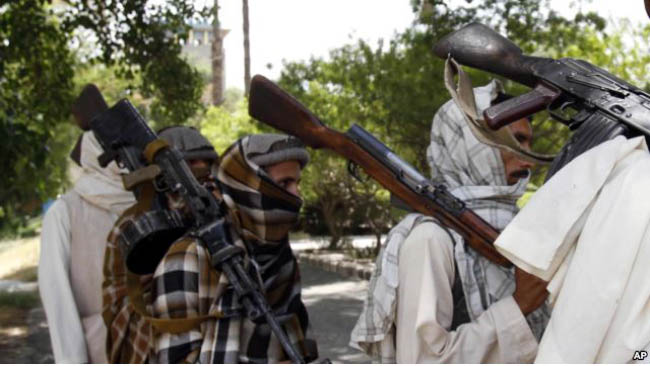As the Afghan Government trying to pursue the Taliban to join the peace process, there are widespread skepticisms among the public towards the peace negotiations with the Taliban. Based on a recent survey carried out by the Afghan Institute for Strategic Studies (AISS), over 70 percent of respondents in 15 provinces are pessimistic to the efforts to negotiate with the Taliban and consider it a failed endeavor. According to the survey, most people are also concerned about possible compromises of human rights, women’s rights and the Afghan constitution. This is while the terms and boundaries of negotiations and a possible peace deal between the two sides are of the vaguest aspects of the peace talks.
There is no clear objective from the peace efforts and a possible deal with the militant groups. It is still unclear whether on what costs the Afghan government will seek a peace dealswith the militants. The Afghan officials have stated time and again that the country’s constitution and women rights would not beundermined in negotiations. Ironically, the Taliban have always maintained a strict stance over the terms of possible peace negotiations. There seem to be a hugedifference between the two sides.
The very first precondition of Taliban is complete withdrawal of foreign troops. Ahead of the establishment of the four-nation peace plan, and later refused to take part in the planned face-to-face talks. Although, Taliban also demanded removal of theirleaders names from the UN blacklist and cessation of military operations against the group. While the Taliban have persistently demanded withdrawal of foreign troops before starting any peace negotiations,the presence of foreign forces has always been a red line for the US and the Afghan government. The United States and the Afghan government have made it clear that the foreign forces will stay in the country as part of the Resolute Support Mission to train, advise and assist Afghan security forces.
The Afghan government considers presence of foreign forces as vital for training and equipment of the Afghan security forces and as a leverage to put pressures on the military groups in the battlefield. The government hopes this would keep the military balance against the Taliban and prevent the militants to achieve further military gains that would leave them in a much stronger position in possible future peace negotiations. On the hand, there are firm beliefs that the Taliban will use a vacuum of international direct military support to Afghanistan to further expand the insurgency and weaken the government. The Taliban did use the same opportunity ahead of 2014 during the talks over the withdrawal of US-led foreign forces. They ignored passionate calls of former president Hamid Karzai to join the table of negotiations and waited for the drawdown of the US-led international forces to launch even more aggressive attacks.
Aside the rigid preconditions, the early stages of peace negotiations would be highly tricky. Even if the talks start, it would hit hurdles in the very first place. When the talks start, the two sides would seek to establish a ground for negotiations and specify what they are going to negotiate. It is hard to imagine the two sides agree on the terms of the negotiations and a possible peace deal at the end. There seem to be no room for compromises between the two sides whether to include issues like Afghanistan’s political system, the constitution and regulating Sharia system in the agenda. The gap over the terms of the talks cannot be bridged in the early stage with the two sides unable to cross their respective established red lines.
Although, There are often talks among Afghan officials of considering political and financial concessions to the Taliban. There have been rumors in the past that some powers had been considering political concessions to the Taliban such as giving them ministerial posts and control of some provinces in the South. However, the Afghan government vehemently opposed the idea and called it a betrayal to the people of Afghanistan. Even if the Afghan government reach to the point to consider such concessions for the Taliban, it would be hard to imagine the government and the rest of the political class in Afghanistan would give the Taliban concessions that the militants expect to receive in exchange of denouncing violence. On the other hand, smaller concessions would not appease the Taliban. It would be naïve to think the Taliban would abandon their fight for such political concessions that could be taken back some day when circumstance change.
The main aim of the talks perhaps is to make peace with the main Taliban group through some sort of power-sharing. However as stated above, it would be crucially difficult, but not impossible. The question hovering here is that there are any other scenarios for peace talks between the government and the militant groups? Well, anotherassumption is that some parties may be enticed by the political concessions that would be given to them. So based on this assumption, one of the objectives of the peace talks is to create some sort of divisions among the Taliban, which means practically splitting the group and weakening them on the battleground. This, however, would not be easy either. But it may worth testing.
Home » Opinion » Is There a Ground for Peace Talks?
Is There a Ground for Peace Talks?
| Abdul Ahad Bahrami

